UNISON’s new general secretary, Christina McAnea, has taken the union’s top job during one of the country’s darkest hours – and a terrible, challenging time for the union’s members.
“The one word we hear from members, time and time again, is ‘exhaustion.’ They have worked through every wave of the pandemic – for most of them it probably feels never-ending,” she says.
“I hate using the phrase ‘frontline worker,’ because as far as we’re concerned everybody’s frontline right now. There are forgotten groups of people who are not on anybody’s radar, except for UNISON’s probably. It’s up to us as a union to make sure we’re making the case, all the time, for every one of them.”
Before taking the reins from long-serving general secretary Dave Prentis in January, Christina was the union’s assistant general secretary for bargaining and negotiation – effectively its senior negotiator. As such, since the COVID outbreak she’d been tackling government and employers alike to ensure they were responding to the many issues raised by members, most crucially the provision of PPE.
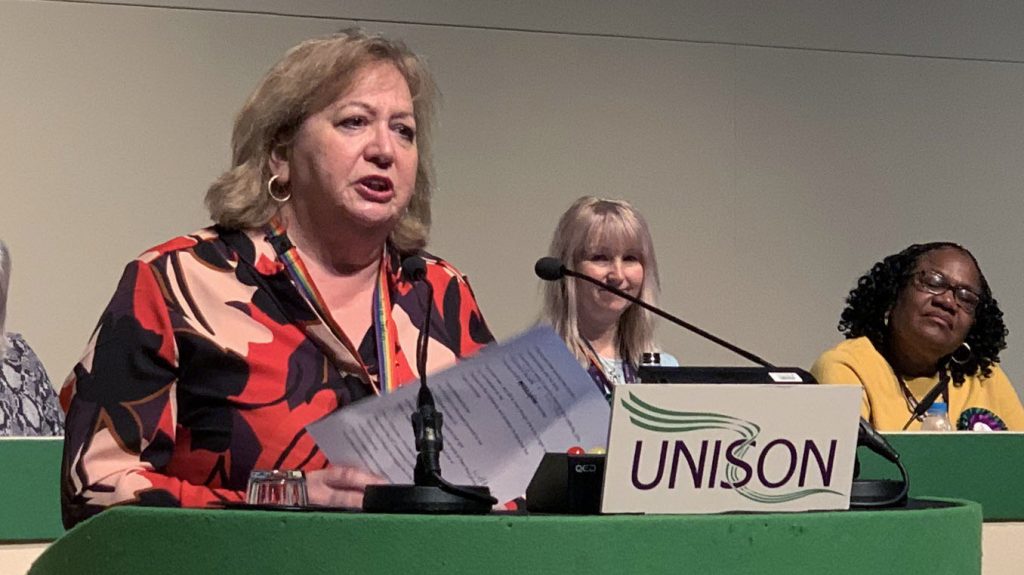
With so much still to negotiate – both in dealing with the ongoing health crisis and looking ahead to life after the pandemic – I wonder what she thinks makes for an effective negotiator?
“I think the chief skill is emotional intelligence: can you read people and situations, can you build relationships? Some people think negotiating is about going in there and having a shouting match. Actually, most of the time that’s exactly what it isn’t. Most of the time it’s about building trust – with the people you’re working with, the people you’re representing, with other unions and, importantly, with employers.
“Sometimes you do end up having a big fight and you can’t reach an agreement. That happens, obviously. But to be successful, to come out of the room feeling that ‘I’ve got this for the members,’ you have to build trust and relationships.”
At the same time, she adds,“You do have to be able to hold your ground, and to hold your nerve sometimes.”
Humble beginnings
So it’s a good thing that, as Christina admits, “I’ve never been afraid of speaking up for myself.” This might be due to a combination of having two older brothers, and growing up in Glasgow’s Drumchapel, at the time one of the biggest council estates in Europe.“It wasn’t particularly violent, but yeah, it was fairly tough. You had to be able to hold your own.”
At home, her parents were nurturing and inspiring. “They both did manual jobs, all their working life. But they were very clever individuals. There were always books around. What it’s made me realise is that hard work and being clever are often not enough if you come from a disadvantaged background. Opportunity is what’s important. And not everyone gets that opportunity.
“My parents were very aware of that. And they always encouraged us to question things, and to do well at school. And I’m incredibly grateful to them for that.”
Her father fought in WWII, returning from Burma in 1946 to find that he’d lost all chance of an apprenticeship,“never mind the opportunity of higher education – only officers were offered free access to university.” And so he became a labourer. Her mother was an orphan, leaving the orphanage at 15 to go into service as a maid. She also took part in the war, working in munitions in Manchester. When Christina was a child, her mother had a variety of jobs, including a cleaner and dinner lady.
“I’ve never forgotten that my mother talked about our ‘hand-to-mouth existence.’ It’s that feeling that there’s never any spare money. So you don’t earn enough to ever be able to save anything. We never had holidays when I was young – we’d have a day out to the seaside or something. But then loads of my friends didn’t either. If there’s an unexpected expense, your heart sinks. You think, Oh God, if I buy a tyre, next week we’re going to be living on porridge or egg and chips. Or I can’t pay a bill, because the kids need new shoes.
“That gives you a feeling of insecurity in your life. And I think having that kind of background – and knowing that’s what life is like for so many of our members – has driven my anger against inequality in society.”
Pushing the agenda
Christina left school at 16 and did a variety of jobs before she did go to university – studying English and History, after which she became a housing officer for Glasgow City Council. She started her trade union career as a tribunals officer with the GMB, then made the journey south to the union’s London office, where she was involved in legal and equalities work. She then joined NALGO as women’s officer, but soon realised that what she really wanted was to “push the agenda a bit more, to be in the room making the arguments”. By the time UNISON was formed she was a national officer in the local government team.
“That was definitely it for me, I knew this is what I wanted to do. So I just worked my way up through different areas in negotiation – local government, health, police, schools, higher and further education.” Some of her most notable achievements were as head of health, playing key roles in the national pensions dispute in 2011, and the NHS pay strike three years later – the first such strike in England in over 30 years.
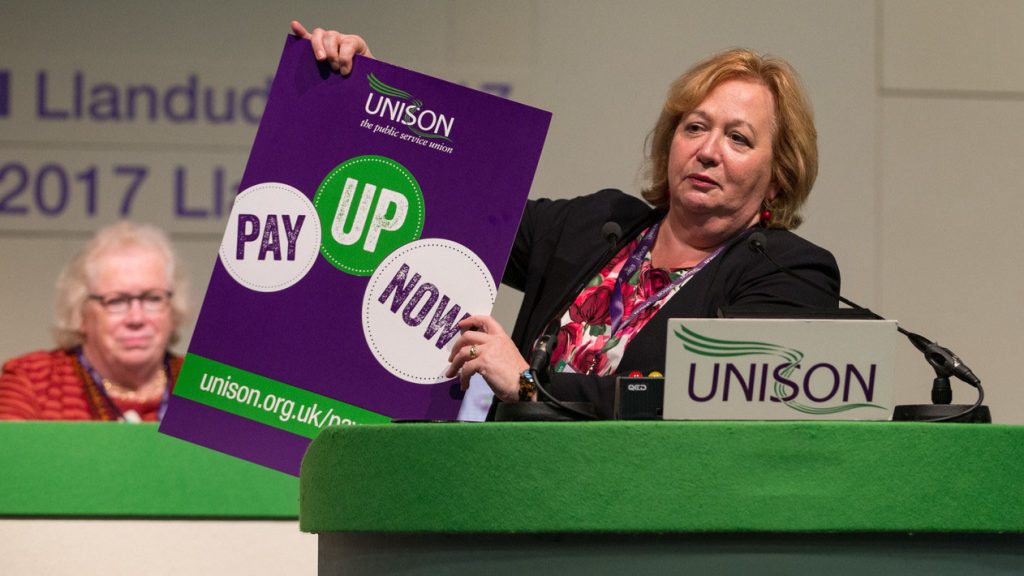
When she started negotiating, in the 1990s, there were next to no women at the table.“You can use that to your advantage with employers sometimes, because you can be unexpected. I’m sure they underestimated me,” she laughs.
For her, one of the two most significant developments in UNISON over the past quarter century is the fact that there are now many more women negotiators representing the union; the other is that equalities across the board “are much more part of the ongoing conversation.”
With the memory of her late parents in mind, Christina mentions others who continue to be underestimated by both government and employers.
“I hate the fact that so many people make assumptions that low pay equals low intelligence. But sometimes that also works to your advantage as a negotiator, because you can take members into meetings with you – who you know are fantastic – and let them loose on employers. And you can see them reeling from this, because they weren’t expecting a school meals worker or nursery nurse to be so articulate and so knowledgeable about their areas of work, the local authority or the hospital. It’s just brilliant to see that.”
Priorities
Not surprisingly, her immediate priority as general secretary is to continue supporting members throughout the coronavirus crisis, on a number of fronts – from maintaining the union’s flow of COVID-related information, guidance and support, to ensuring a wider range of public services workers are recognised for their contribution during the pandemic, to campaigning for immediate payment of the promised pay rise to NHS workers.
She’s also aware that the pandemic has highlighted the impact of racism, poverty and lack of support for disabled people on the ability to fight the virus.“It is so stark and just makes our commitment to fighting these injustices even stronger.”
Alongside all of that, she’s personally leading UNISON’s campaign for wholesale reform of the social care system, which involves thousands of the union’s lowest paid and most maligned members, and for chancellor Rishi Sunak to retract his threatened public sector pay freeze.
Cutbacks in pay will harm the economy just when it needs all the help it can get
“We’ve all heard the warm words from government across the UK,” she notes. “But as we come out of the pandemic we have to ensure that the Tories at Westminster don’t revert to type, that six months from now they won’t start saying, ‘Well we need to save money so let’s do that by cutting public service pay.’
“Our aim is to keep up the pressure. I will be working with Frances O’Grady at the TUC and other unions to convince the chancellor to think again. Make them realise how important we are as a trade union and how important our members are in getting the country through the pandemic – indeed, through any crisis. Build the economic case that it’s in the government’s interest and the country’s interest to work with us and not to run down public services.
“Cutbacks in pay will harm the economy just when it needs all the help it can get. They certainly won’t help essential services like health and care that are already struggling with huge vacancies – staff will keep leaving and it will make them less attractive to new recruits.”
She remembers a piece of advice that her father gave her when she was a child, which she’s used many times in her life and career, and which will no doubt come into play in these difficult months ahead.
“You know when you’re feeling a bit down, or you feel slightly intimidated by a situation. On those occasions, he said,‘You put your shoulders back and your head up, and you walk in there as if you own the place.’”

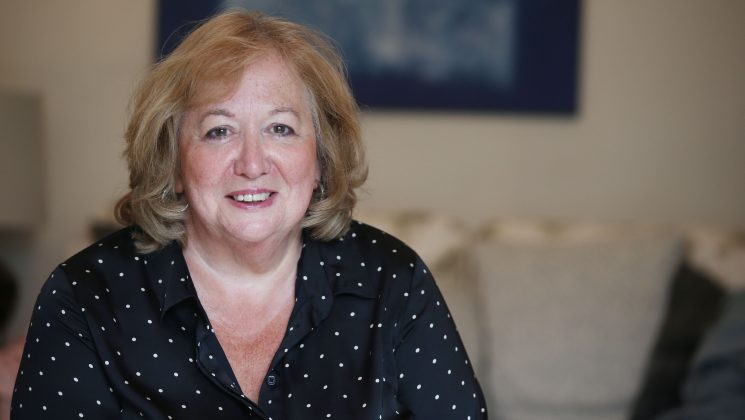


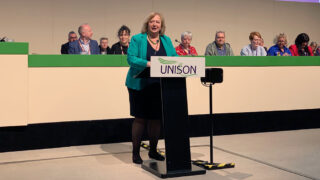
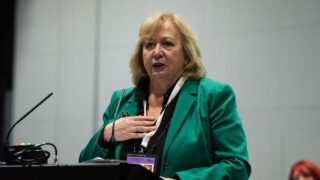
dear all
just been on skills for strength meeting Saturday the 13 just to say that with Cristina Mc Anea has are leader we are on the way she has mojo too do it just listening to her and the position i need to shadow her sore it can rub off on to me
Thank You
Regards
Raymond Allard